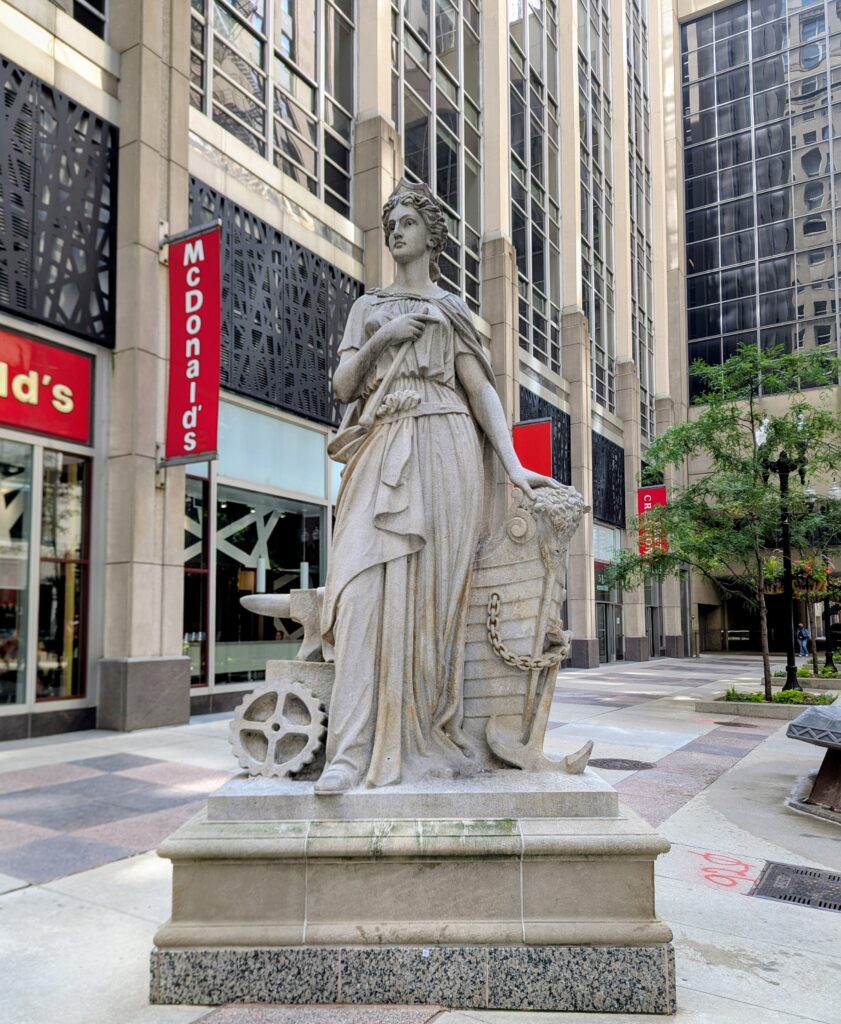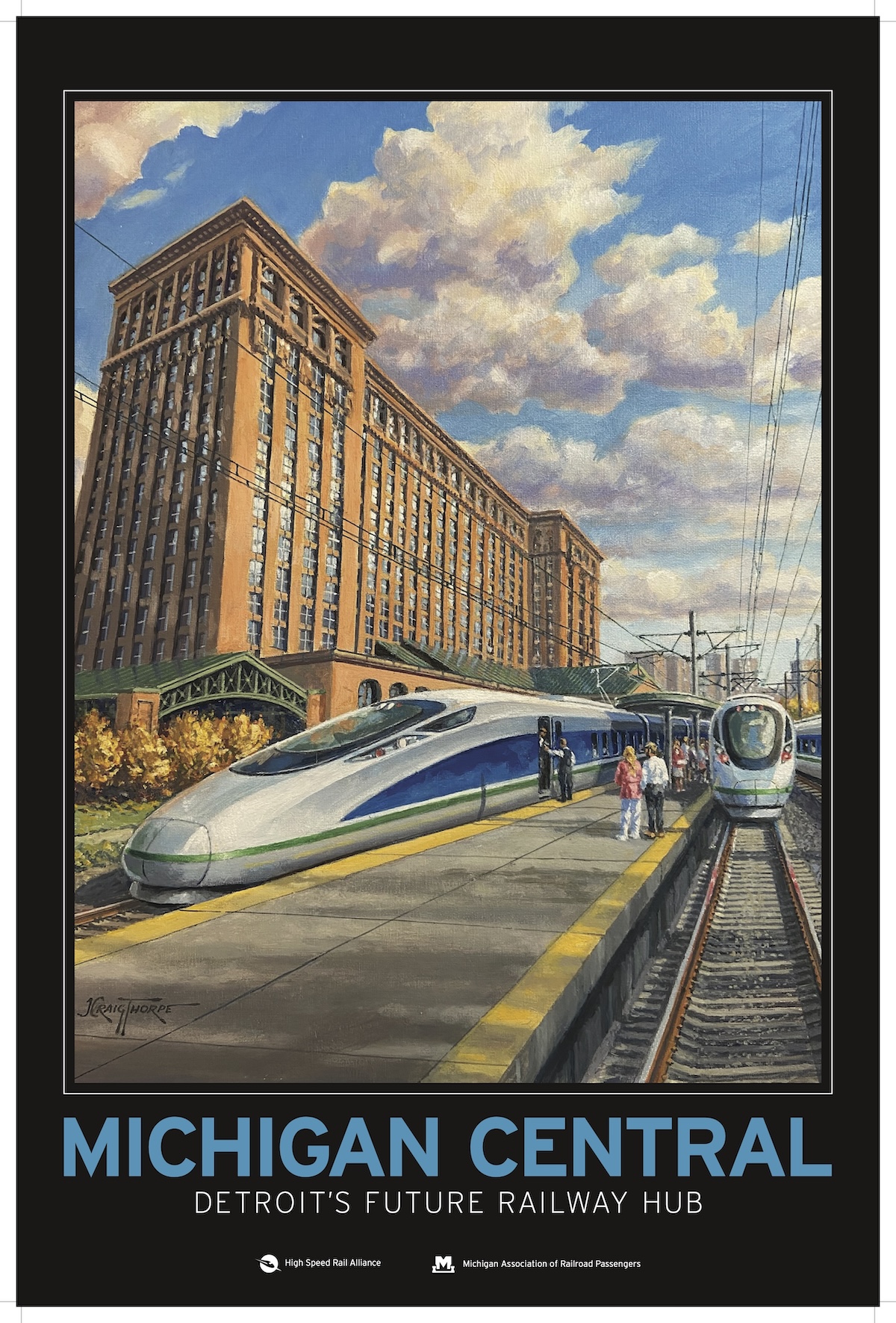Since there scarcely any thought of building them in the US, it’s silly to worry about the downsides of real high-speed trains, but it’s the sort of thing I tend to worry about. After all, the math is kind of scary.
It’s only 135 miles from Champaign’s Illinois Terminal to Chicago’s Union Station. If your trains can average 135 mph, you could make the commute in an hour—a long commute, but well within the range that many people find acceptable.
On a train that fast, you could depart Champaign at 6:45 and get to your desk anywhere in the Loop by 8:00. Another train that left at 7:45 could get you to Union Station in time to be at your desk at 9:00. Combine those with similar trains that departed shortly after the close of business and got you back to Champaign in time for supper, and suddenly Champaign offers all of its regular attractions plus all the attractions of Chicago.
Personally, I think that would be awful. It could easily attract thousands of new residents to Champaign—and Champaign does not need thousands of new residents.
Happily, the high-speed rail network that the US is actually building operates at a top speed of 110 mph—fast compared to highway speeds, but nothing like an average of 135 mph. I don’t know what sort of average speed that would produce, allowing for congestion and stops along the way, but let’s just pick a number and say we could average 90 mph. That would mean that it would take one hour thirty minutes to get to Chicago.
Suddenly the math for making Champaign a bedroom community is much less compelling. At 90 mph, the furthest you could live from Chicago and still have a one-hour commute would be Gilman. As a practical matter, people who found the idea attractive would probably live in Kankakee instead. Not that I have anything against Kankakee, but better they get thousands of downtown Chicago workers than we do.
While averting the downside of turning Champaign into a bedroom community, moderately high-speed rail service is still great for non-commuters. Amtrak service to Chicago is already pretty good—fine for a day trip to Chicago. I can catch the City of New Orleans at 6:00 AM and get to Chicago before the museums open. After a day in the city I can either leave around 4:00 PM on the Illini and get home in time for supper, or I can have an early supper in Chicago, leave around 8:00, and get home by bedtime. Imagine if those trains averaged 90 mph.
Better, imagine a couple of 110 mph trains making evening runs designed to allow people in Champaign to head into the city after work, arrive early enough for a late dinner—or, if they ate dinner on the train, a show—and then return in time to spend the night in their own bed.
The more I think about it, the happier I am with the (objectively pretty lame) moderately high-speed rail taking shape in the US. It has great potential to make Chicago accessible for half-day or evening visits without the downside of turning Champaign into a bedroom community.
(All these meditations prompted by Andrea Mayeux‘s article Researchers say high-speed rail could fuel U.S. real-estate, economic booms, via Tobias Buckell’s post High speed rail could spark a real estate boom in second tier cities.)







